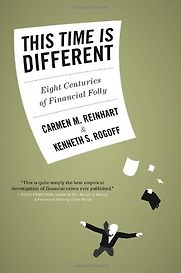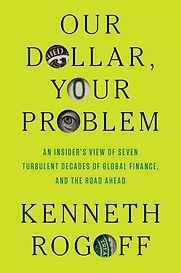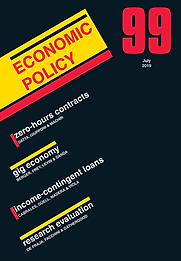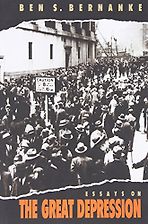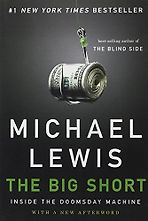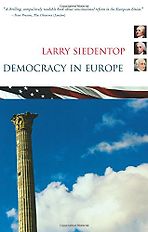Recommendations from our site
“Why is the book called This Time Is Different? Because there is a common theme. The typical pattern, that the authors highlight, is that during good times, when things go well and the economy is healthy—there is low unemployment, high consumption, and economic growth— debt is accumulated either by banks or governments of individual countries. Or by households, as was the case in the United States in the 2000s. As you accumulate more debt, one could become concerned that this is dangerous. With more debt, you become more vulnerable to debt becoming very expensive and not being able to repay it. But the typical response is, ‘Don’t worry, because this time is different…for one reason or another.’” Read more...
The best books on Fiscal Policy
Sergio de Ferra, Economist
“They…took an enormous amount of time to put together datasets that allow us to look back eight centuries and ask, quantitatively, whether there are any common denominators to financial crises. And the not-surprising answer is, ‘Yes, absolutely.’” Read more...
Andrew W Lo, Economist
“Reinhart and Rogoff are two macroeconomists who have done a marvellous job in bringing together a lot of historical and international data about how unstable financial systems are. The title of their book, This Time is Different, tells you the whole theme. In many respects, the Wall Street crisis was not at all different from Argentina or Britain in the early 1990s or any number of other crises that have been fuelled by credit bubbles and mismanaged macroeconomic policy.” Read more...
Francis Fukuyama recommends the best books on the The Financial Crisis
Francis Fukuyama, Political Scientist
“I think the more interesting story in This Time Is Different is what happens in the aftermath of bubbles, which links to what we were talking about before. In the case of the US, it’s still very reliant on tried and tested formulas to try to sort out economic busts – ie let’s just reflate this bubble by using relatively loose monetary policy and fiscal policy (think low interest rates, tax breaks, government spending increases, quantitative easing). In a similar vein, the Chinese moved very quickly, with strong political will, to finance and build massive infrastructure projects and construct massive cities. They have a lot of flexibility in what they can do in the aftermath of a financial crisis and how they can execute it, because they’ve got the political will and the political ability..” Read more...
The best books on The Decline of the West
Dambisa Moyo, Economist
“The great thing that Rogoff and Reinhart have done is they’ve assembled this huge database. They’ve gone back 800 years and you can see roughly what’s been going on with government borrowing and lending over that time.” Read more...
The best books on Financial Crashes
Charles Morris, Entrepreneurs & Business People
Other books by Carmen Reinhart and Kenneth Rogoff
Our most recommended books
-

Essays on the Great Depression
by Ben Bernanke -

The Big Short: Inside the Doomsday Machine
by Michael Lewis -

This Time Is Different
by Carmen Reinhart & Kenneth Rogoff -

A Monetary History of the United States, 1867-1960
by Anna Schwartz & Milton Friedman -

John Maynard Keynes: 1883-1946: Economist, Philosopher, Statesman
by Robert Skidelsky -

Democracy in Europe
by Larry Siedentop
